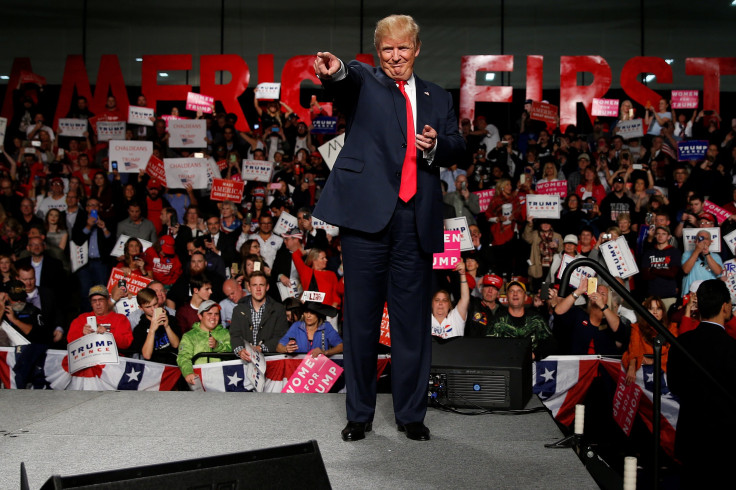Clinton, Trump Polls: Who Is Leading With 1 Week Left? Gary Johnson, Jill Stein Gaining Or Losing Steam?

With Election Day just one week away, the race for the White House has tightened between Donald Trump and Hillary Clinton. The latest polling shows Clinton's 6-point lead last week has shrunk to well below 3 points.
The Real Clear Politics average of polls has the Democratic nominee leading by 2.2 points. That's a far cry from polling last week when polls suggested that Clinton could cruise to a general election landslide. There are multiple explanations for the voter shift including hesitant Republicans renewing support for Trump despite recent sexual assault claims, as well as an FBI review of Clinton-related emails that may cut into her support among some undecided voters.
The most recent ABC News/Washington Post tracking poll, a survey that had Clinton up by as much as 12 percentage points about a week ago, even showed Trump was up by 1 point Tuesday in a four-way race. Surveys from Rasmussen Reports and Investor's Business Daily/TIPP, two polling firms that previously made headlines for leaning toward Trump when Clinton was leading in most other polls, showed a tie and Clinton up 1 point, respectively. A weekly tracking poll released Monday by NBC News/Survey Monkey, meanwhile, showed the Democratic nominee holding steady, up 6 points over Trump.
While polling suggests Trump has narrowed the gap in national polling, Clinton's position remains strong in crucial battleground states as the GOP nominee Trump continues to show a perilously narrow path to the 270 electoral votes. Trump likely needs to sweep toss-up states like Florida and Ohio, while upsetting Clinton in states like Pennsylvania and North Carolina. The polls-only election forecast from data-driven website FiveThirtyEight gave Clinton a 73 percent shot at winning.
There appears to be some votes up for grabs as Election Day approaches since third-party nominees — Libertarian Gary Johnson and the Green Party's Jill Stein — have begun to lose ground as voters seemingly rethink casting a ballot for a candidate with no real shot at winning.
After previously reaching double-digit support over the summer, Johnson hasn't risen above 6 percent in the last five polls in the Real Clear Politics average. Stein, meanwhile, is polling at anywhere from 1 to 3 percent support.
With Trump and Clinton deemed polarizing by a sizable portion of the electorate, this election cycle has been considered particularly crucial for third-party candidates. Both Johnson and Stein ran as the nominees for their respective parties in 2012, but failed to reach 1 percent.
© Copyright IBTimes 2024. All rights reserved.












